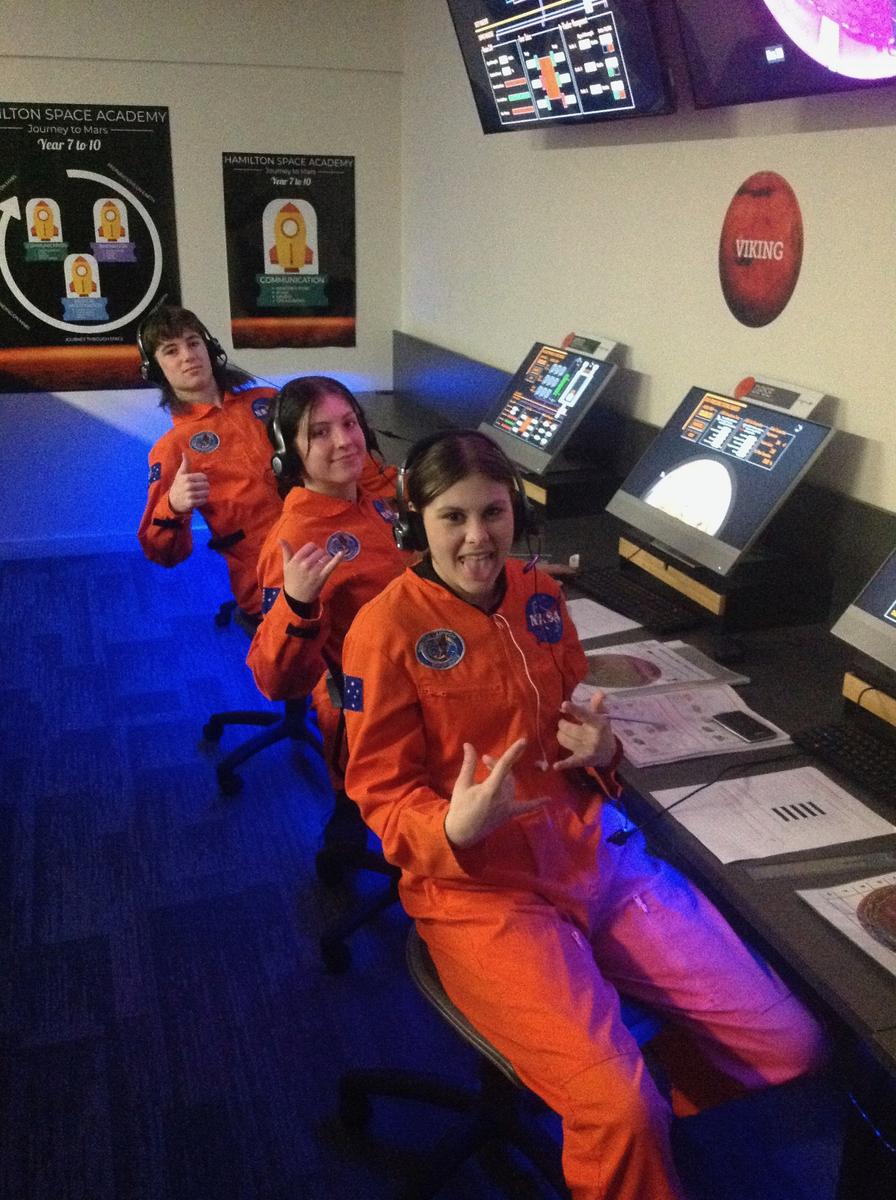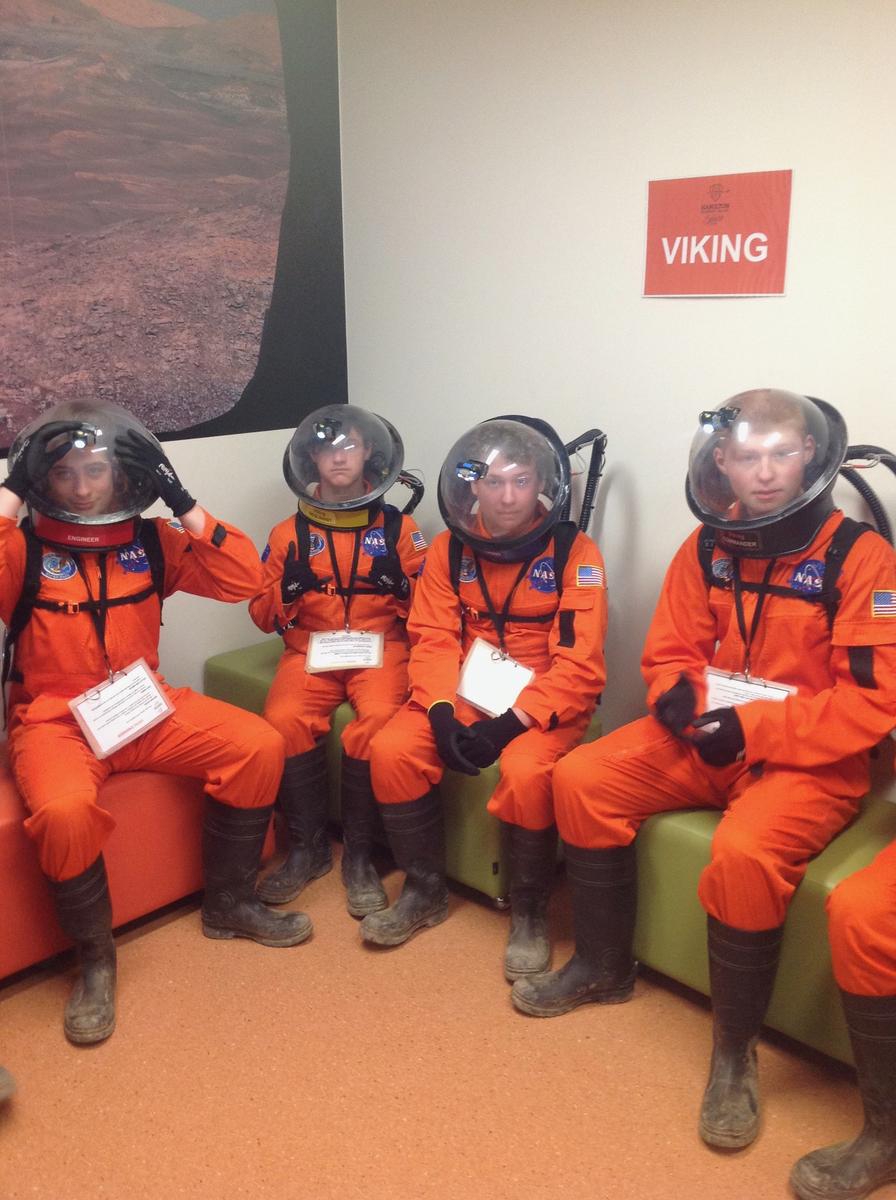Exploring the Red Planet
Zoe Shaw, Teacher

Exploring the Red Planet
Zoe Shaw, Teacher
Greetings, people on Earth!
We are excited to share an adventure that unfolded on 24 August at Hamilton College. A group of enthusiastic Year 9 and 10 students embarked on a remarkable 'Mission to Mars' program that took them on a simulated journey to the mysterious Red Planet. This unique experience provided them with hands-on learning, teamwork, and a taste of space exploration like never before.
The day began with a journey to the stars as students gathered in the awe-inspiring planetarium. In this captivating setting, they witnessed the ignition and ascent of a virtual rocket, igniting their imaginations and setting the tone for the experiences that lay ahead.


Subsequently, our intrepid young explorers were divided into two groups, each engaging in distinct roles central to the success of the mission. The first half donned space suits, complete with helmets and oxygen tanks, and ventured onto a simulated Martian landscape. Their mission? To gather rock samples and face a series of challenges that tested their adaptability and problem-solving skills. Navigating the simulated Martian terrain, they encountered obstacles and unknowns just as real astronauts might.
Meanwhile, the other half of the students found themselves in the control room—a nerve center from which they guided their peers on the Martian surface. In this role, they assumed responsibility for communication, mathematics, science equations, and monitoring changes in weather conditions. Their ability to collaborate effectively and provide crucial instructions ensured the safety and success of the explorers on Mars.


What truly stood out was the collaboration between the two groups. Despite the physical distance and distinct tasks, the students worked cohesively as a team. The astronauts on Mars relied on the guidance from the control room, while the control room team depended on the astronauts' feedback to make informed decisions. This experience underscored the importance of clear communication, adaptability, and collective effort in achieving ambitious goals.
As the day progressed, students switched roles, allowing everyone to experience both sides of the Mars exploration scenario. The immersive nature of the program not only ignited their interest in space exploration it also nurtured valuable skills that extend beyond the realm of science.
In the end, the 'Mission to Mars' program left an indelible mark on the participating students. Their growth in understanding of teamwork, problem-solving, and the challenges of space exploration will undoubtedly serve them well in their academic journeys and future endeavours. We extend our appreciation to Hamilton Secondary College for organizing such a captivating and educational experience. It is initiatives like these that inspire and shape the leaders, innovators, and explorers of tomorrow.
Until our next adventure!